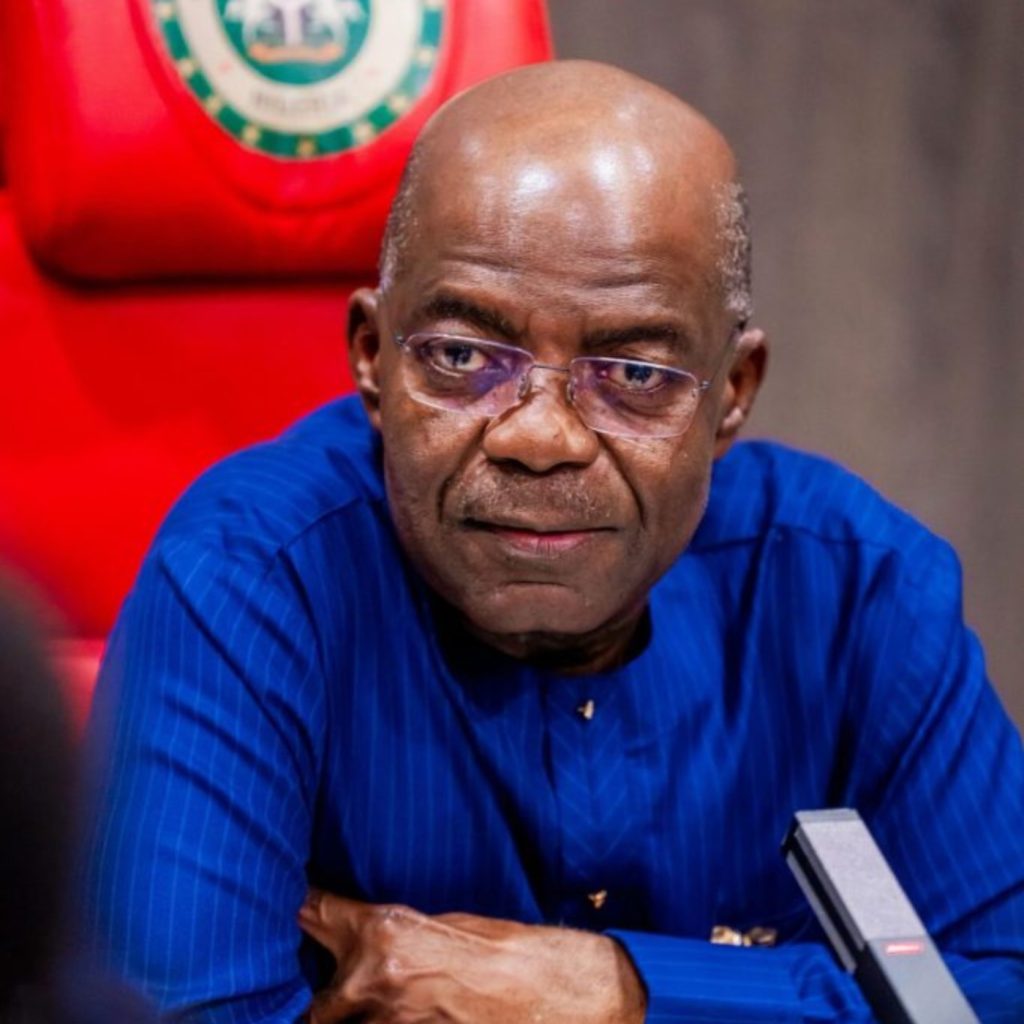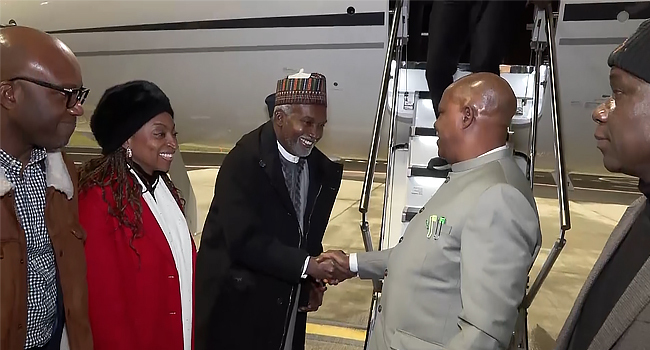Foreign airlines are facing a mounting challenge in Nigeria as they grapple with a prolonged forex crisis, raising concerns of possible flight suspensions and significant economic repercussions. The Minister of Aviation and Aerospace Development, Festus Keyamo, is under increasing pressure to address the situation and prevent further disruption to the country’s aviation sector.
Keyamo’s recent efforts to facilitate the resumption of flight operations for Emirates Airline, following its suspension of services to Nigeria, underscore the severity of the issue. The airline’s decision to halt operations, citing failed negotiations with Nigerian authorities over fund repatriation, has brought the forex crisis to the forefront of aviation concerns.
Nigeria currently holds the highest amount of airline-trapped funds globally, with over 27 foreign carriers operating in the country. The total funds trapped have soared to approximately $792 million, posing a significant challenge to foreign airlines attempting to repatriate their earnings due to the country’s dollar shortages and declining oil production affecting forex reserves.
According to industry experts, the forex crisis has resulted in a situation where foreign airlines, which sell tickets in local currency but incur various operational expenses in dollars, struggle to repatriate their earnings. This predicament has raised questions about the allocation and utilization of aviation-related earnings, adding a layer of complexity to the crisis.
The potential exodus of foreign airlines from the Nigerian market looms large, with fears that more carriers may follow the precedent set by Etihad and Emirates Airlines. The departure of these airlines could have far-reaching implications, as they contribute over 80% of the country’s commercial aviation services earnings, underscoring the critical dependence on foreign carriers for the industry’s viability.
However, the challenges extend beyond repatriating funds, as high operating costs and significant disparities in operational expenses further compound the aviation sector’s woes. The exorbitant operational fees at airports in Nigeria, particularly in Lagos and Abuja, deem the country’s aviation landscape as costlier compared to the Gulf Cooperation Council Regions. These heightened costs, exacerbated by soaring aviation fuel prices and unfavorable exchange rates, threaten to deter airlines from sustained operations within the country.
While efforts to clear a portion of the forex obligations through a $2 billion disbursement by the Central Bank of Nigeria provided some relief, foreign airlines deemed the allocated $61.64 million as insignificant compared to the outstanding $792 million owed to them. This highlights the inadequacy of the partial clearing of the backlog and underscores the pressing need for a comprehensive resolution to the forex crisis.
Amid the challenges, the urgency for a lasting solution to the forex crisis is underscored, as the aviation sector’s contributions to Nigeria’s Gross Domestic Product depict its critical role in the country’s economic landscape. The ability to address these forex challenges, mitigate operational disparities, and strengthen the aviation ecosystem is pivotal to preserving Nigeria’s position as an attractive market for global airlines, ensuring sustainable connectivity and economic growth.
Nigerian Government Urged to Settle Foreign Airlines’ Debts to Avoid Industry Crisis
Representatives in Nigeria have emphasized the urgent need for the government to address the issue of unpaid debts owed to foreign airlines. Dr. Kingsley Nwokoma, speaking on behalf of the airline industry, stressed the importance of the government making reasonable payments to prevent the potential collapse of the country’s aviation sector.
Nwokoma highlighted that the foreign airlines downplayed the recently released funds, deeming it insufficient to alleviate their financial strain. He emphasized the necessity of a more substantial payment, suggesting that a minimum of $300 million, or half of the outstanding debt, would provide a glimmer of hope for the affected airlines.
The lack of progress in debt repayment was outlined, with only $61 million having been disbursed thus far. Nwokoma proposed a structured payment plan, suggesting that the government should commit to regular quarterly payments to alleviate the financial burden on the airlines.
In addition, Nwokoma underscored Nigeria’s obligation to honor the Bilateral Aviation Services Agreement (BASA), an essential air transport agreement between countries. He lamented the country’s failure to meet its commitments under BASA, emphasizing the potential ramifications of such defaults on international airlines’ willingness to operate within Nigeria.
Highlighting the industry’s dependency on the U.S. dollar, Nwokoma elucidated the severe consequences of non-payment, emphasizing the impact on various operational expenses such as catering, handling, and accommodation, which are predominantly conducted in dollars.
In urging the government to engage in constructive dialogue with foreign airlines to establish a feasible repayment plan, Nwokoma emphasized the significance of upholding such agreements to foster progress and stability within the aviation sector.
Susan Akporiaye, the President of the National Association of Nigerian Travel Agencies, provided further insight into the issue, revealing that the $61.64 million disbursed to foreign airlines was a fraction of the accumulated debt. She highlighted the impact of the prevailing exchange rates, which have significantly reduced the original debt of over $800 million, albeit leading to repercussions such as Emirates discontinuing flights into Nigeria.
Akporiaye emphasized the government’s commitment to settling the outstanding debt at the exchange rates applicable during the ticket sales period, shedding light on the complexities and consequences associated with the debt repayment process.
The prevailing concerns voiced by Nwokoma and Akporiaye underscore the critical need for the Nigerian government to prioritize this issue and work towards a sustainable resolution, lest the aviation industry face further turmoil and potential disengagement by foreign airlines.



